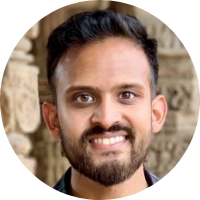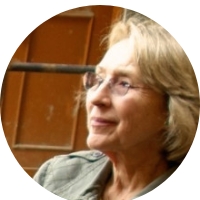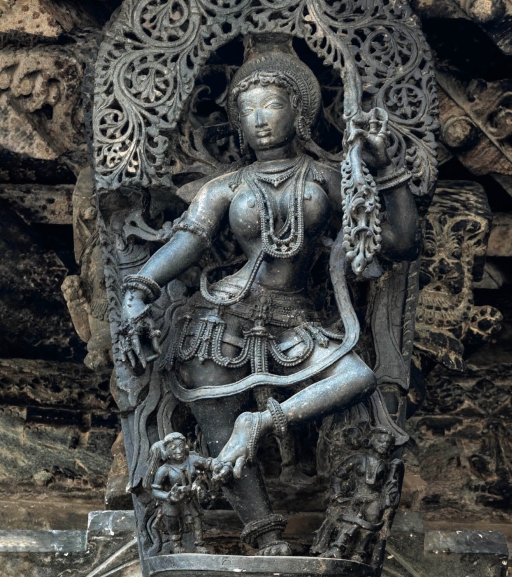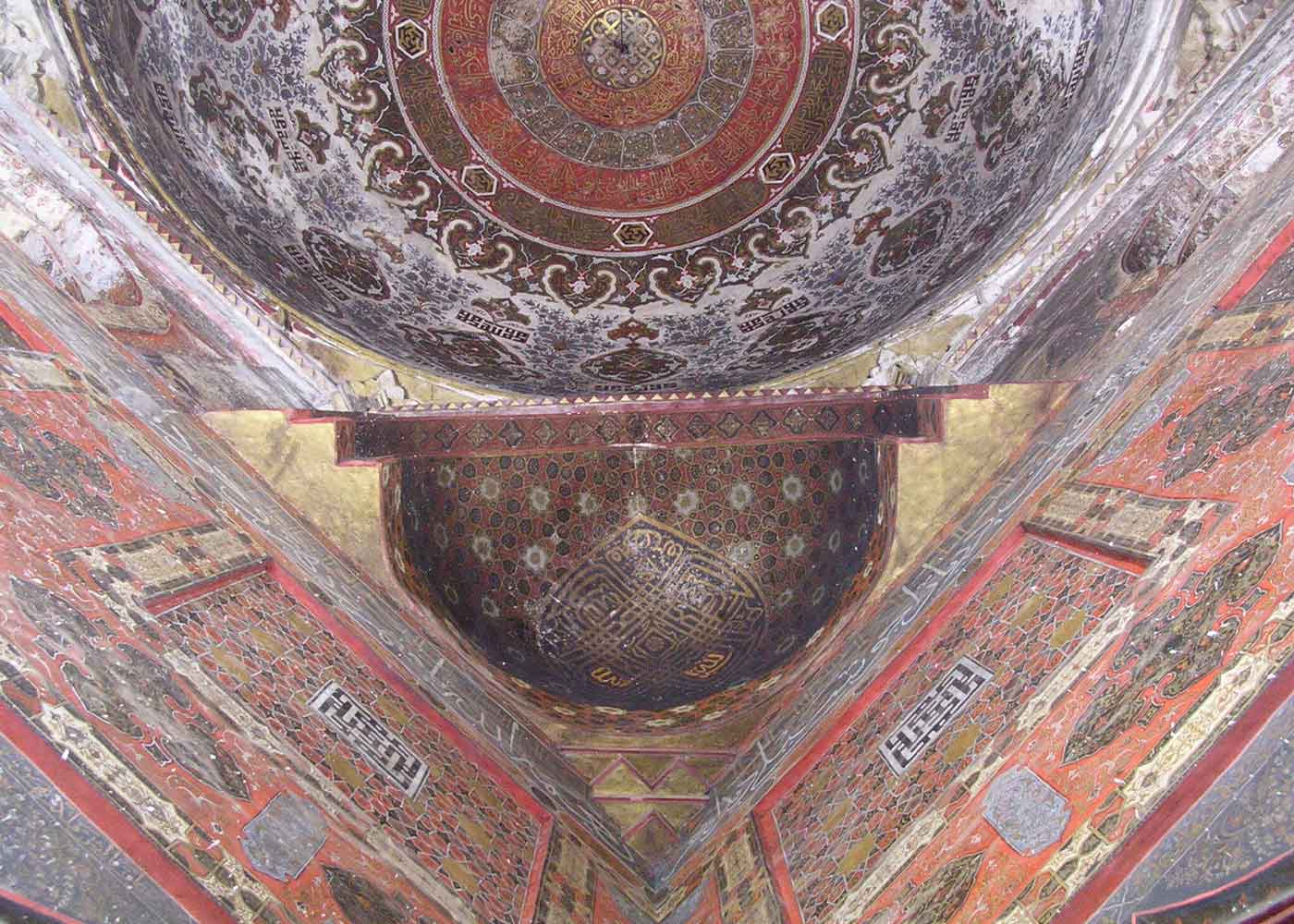Bahmani Architecture and Culture: The Tomb of Ahmad Shah in Bidar
3 December 2021
After the move of the headquarters of the Bahmani kingdom from Gulbarga to the third capital Bidar by Ahmad I Shah (r.1422-36) in c.1430, followed by the rule of his son Ala al-Din Ahmad II (r.1436-1458), the Bahmani kingdom reached its greatest glory. The affluent city with its religious and civic institutions was connected to a formidable citadel with palaces and elaborate water systems that overlooked the fertile valley of the Manjira. Northeast of this fort and next to a water reservoir, that no longer exists, was the royal necropolis of the Bahmani sultans that ruled effectively from Bidar till 1490 and as puppets of the Baridi governors of Bidar for another twenty years.
The first mausoleum to be built in the royal necropolis of Ashtur northeast of the fort was that of the founder of Bidar Ahmad I Shah. His majestic tomb sits on the eastern edge of the platform that also accommodates the equally magnificent sepulchre of his son located along the axis of his father’s mihrab. From there one could gaze at the water reservoir that unfolded below the platform.
Ala al-Din was the consolidator of a new religio-political kingship introduced by his father under the influence of the unitary cosmography of Shah Nimatullah, expressed in the poetic verses that are inscribed on the walls of the tomb of Ahmad Shah, whose sacred kingship was recognised by Shah Nimatullah during the sultans life.
The themes that adorn the walls of this unique sepulchre are painted in vibrant colours. They attest to the influence of local and Islamic visual traditions to pictorialize the mystical unitary philosophy with political reverberations, expounded on the walls of Ahmad Shah’s mausoleum.
Dr. Mondini, Dr. Philon and Dr. Gupta approached this remarkable monument from the various perspectives of their research that ranged from politico-religious, social and art historical.
Speaker(s)
Sara Mondini
Sara Mondini is adjunct professor and temporary research fellow at the Venice Ca’ Foscari University (Italy). She holds a PhD in Oriental Studies from Venice Ca’ Foscari Uni... Read More

Vivek Gupta
Dr Vivek Gupta is Postdoctoral Associate in Islamic Art (2020-2023) at the Centre of Islamic Studies at the University of Cambridge where he is also affiliated with Jesus Colleg... Read More

Dr Helen Philon
Helen Philon is a scholar with an M.Ph. in Pre-Islamic Art and a PhD on Bahmani Deccan architecture from the School of Oriental and African Studies, University of London. Helen ... Read More


